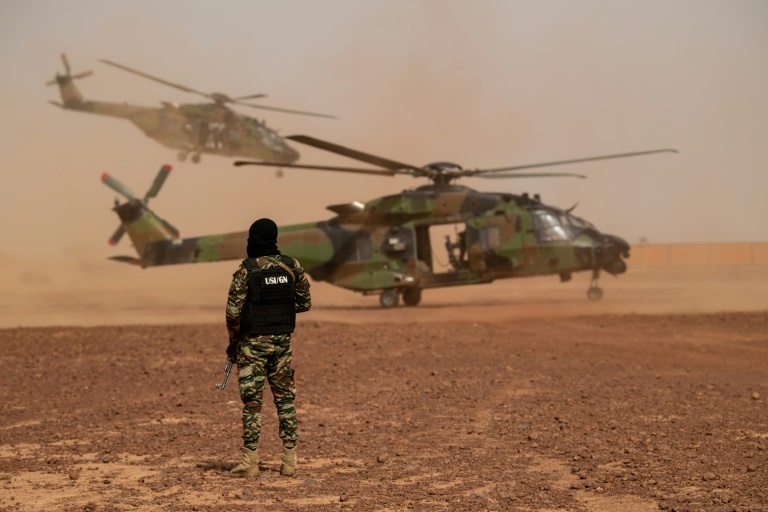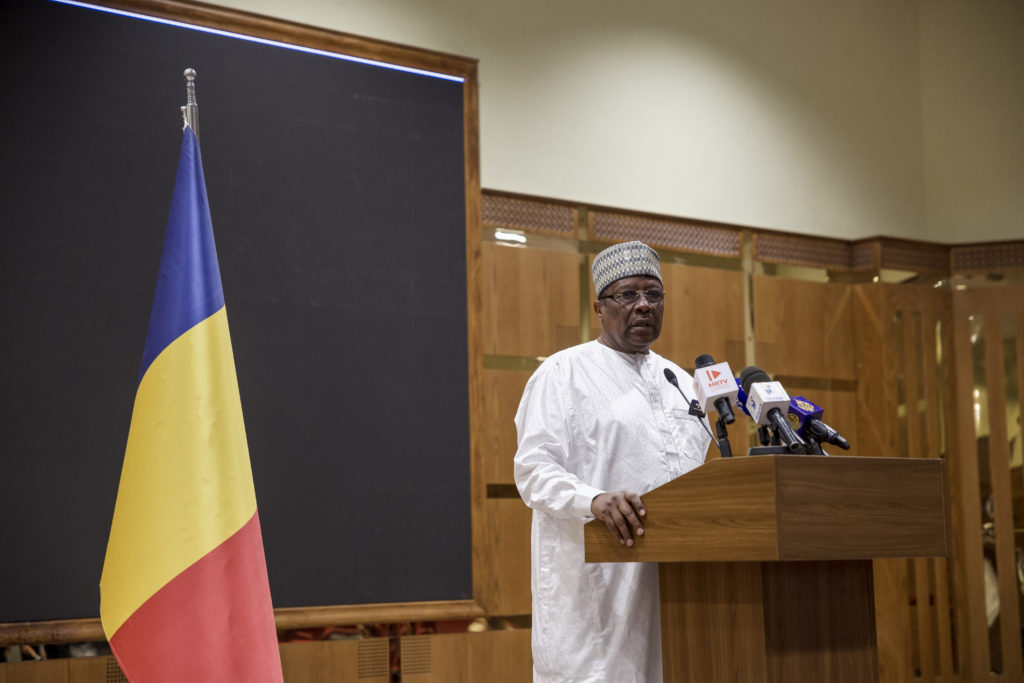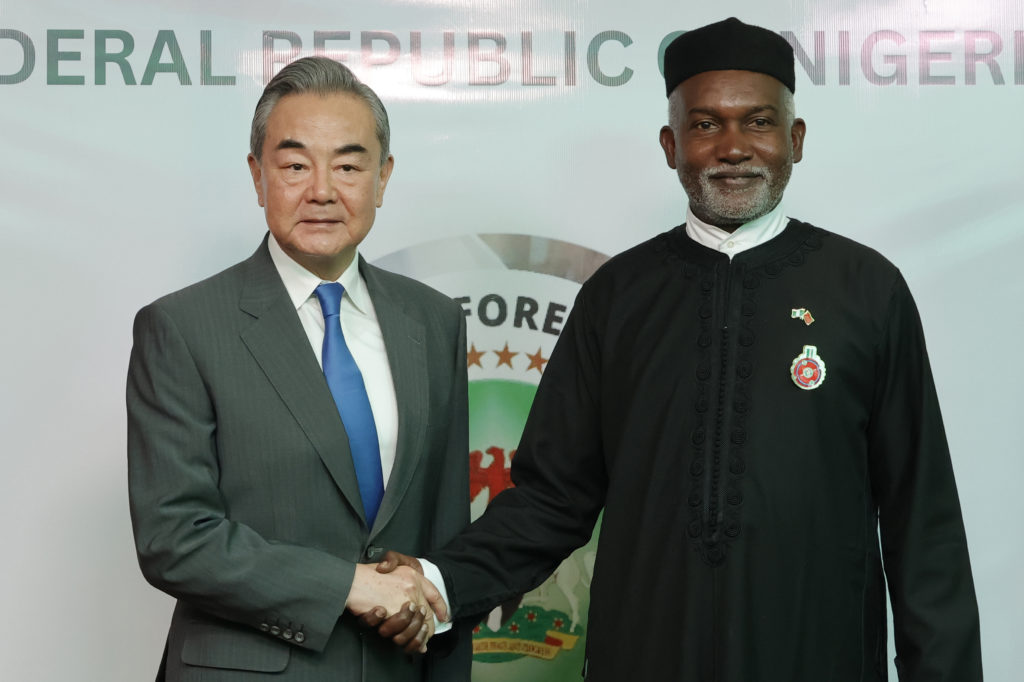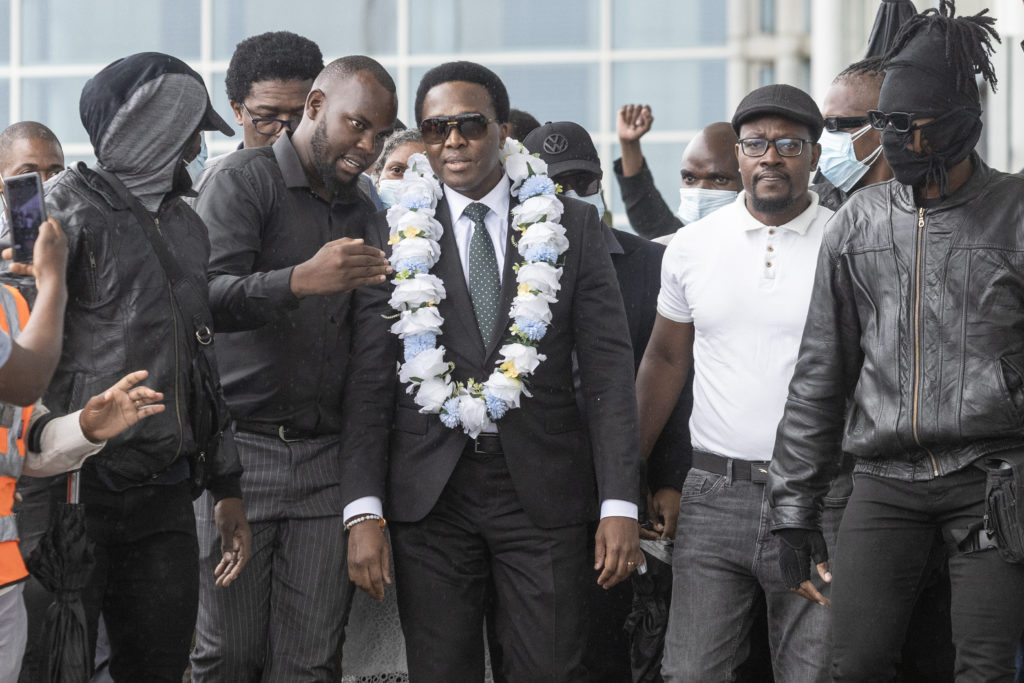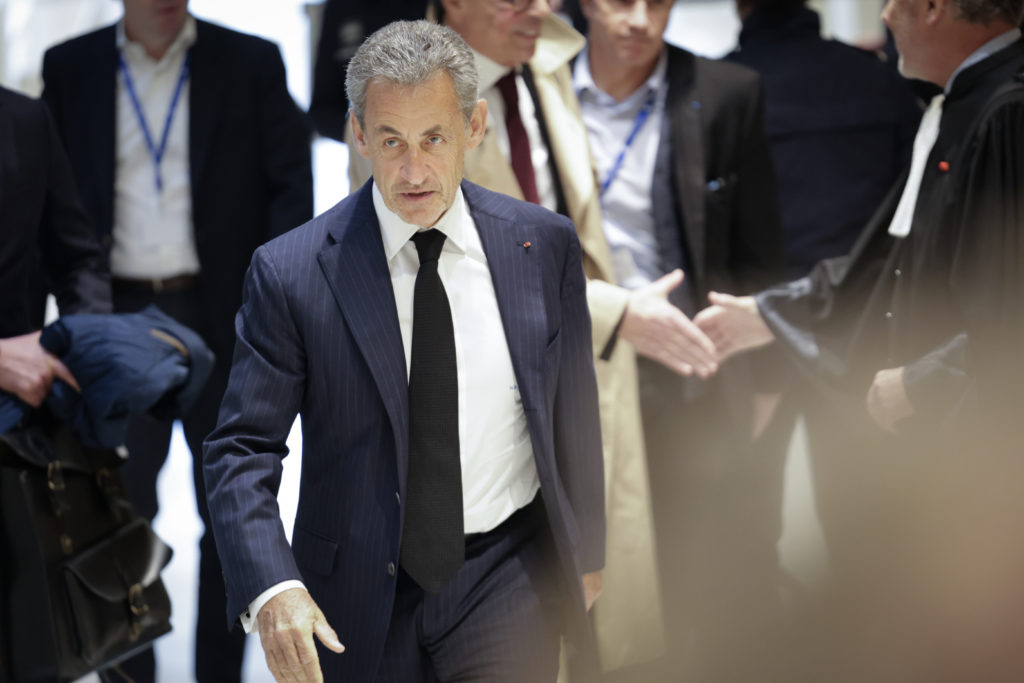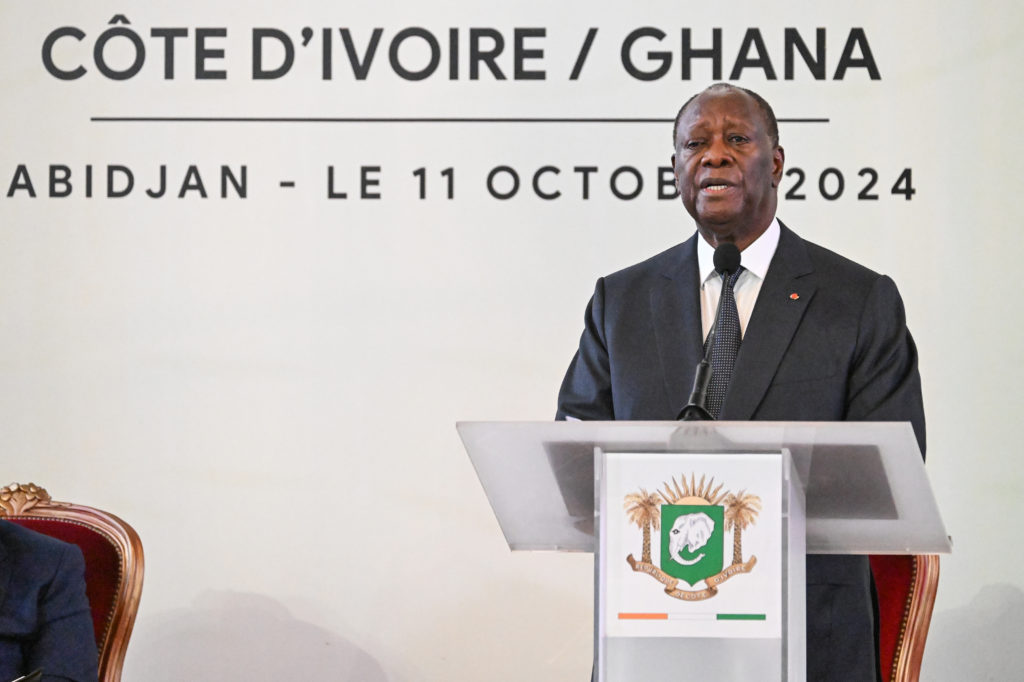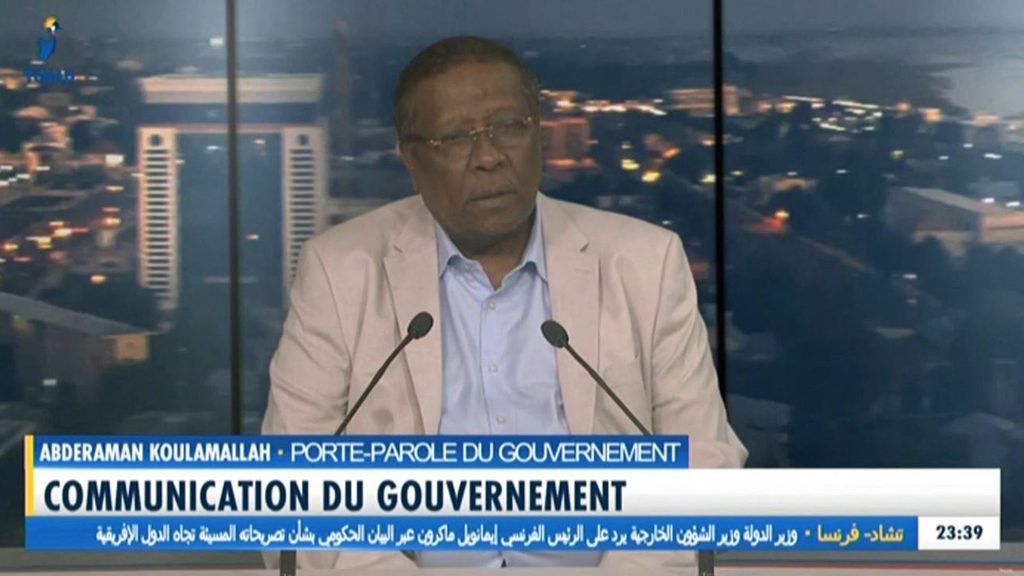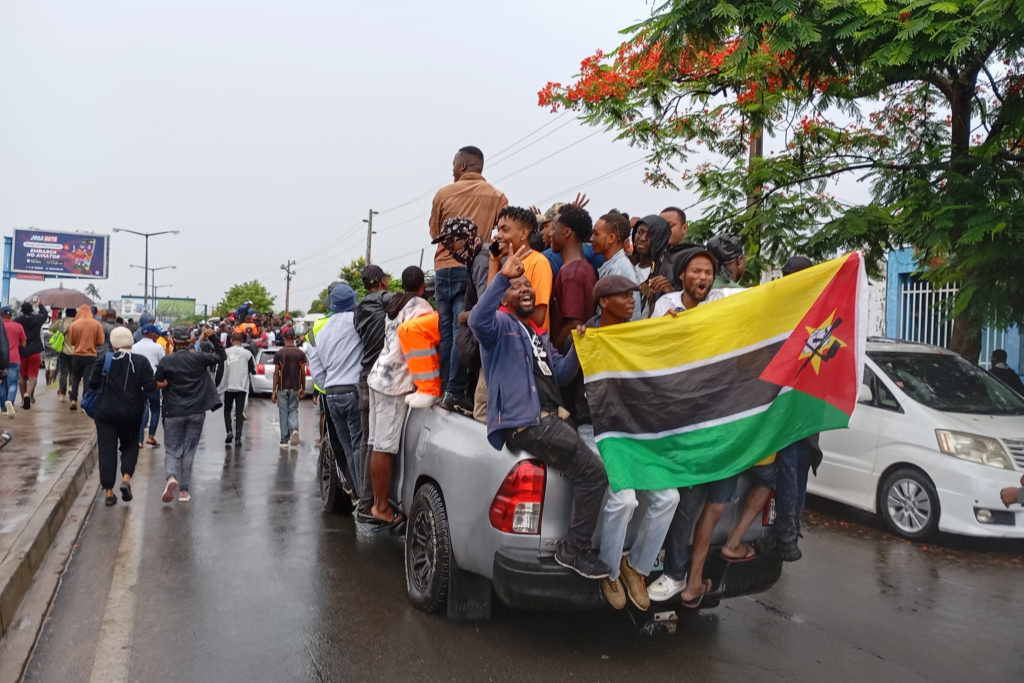At Ouallam military base in western Niger, France’s fabled Foreign Legion and local troops work side-by-side, and the tricolour that floats over the camp is the ochre, white and green flag of Niger.
“Every morning, we stop and salute the Nigerien flag,” said a Foreign Legion lieutenant who had arrived at Ouallam a week earlier with the force’s 2nd Infantry Regiment.
The flags symbolise the changes underway as France revamps its role fighting jihadists whose years-long insurgency has devastated the Sahel.
The base, located on the badly-hit border north of Niger’s capital Niamey, has 300 French infantry, who operate alongside local troops — and their commander is a Nigerien.
Cooperation with host countries and a lower profile have become keywords in French military conversation since President Emmanuel Macron in February announced a shakeup of strategy in the Sahel.
In the coming weeks, French forces are expected to complete a pullout from Mali, ending a nearly-decade-long commitment to the country’s fight against Islamist militants.
The withdrawal was caused by a bustup following a coup that saw Mali swing towards the Kremlin and bring in Russian “advisers” condemned by France as mercenaries.
A campaign on social media that accused France of manipulating and exploiting its former Sahel colonies also found fertile ground.
Last November, violent protests erupted against a French supply convoy that wound its way to Mali through Niger and Burkina Faso.
– Support role –
French commanders say troop numbers in the Sahel — 5,100 at their peak — will fall to around 2,500 when the Mali pullout is done.
Instead of acting in the place of local forces, French soldiers will act more in a supporting role, and the host country will take the lead, they say.
“For our mission to succeed, we have to base ourselves on what Niger wants,” Defence Minister Sebastien Lecornu said last Friday as he visited Ouallam with Nigerien counterpart, Alkassoum Indattou.
In Niger, France has an important air base near the capital Niamey, where assets include drones.
Paris is expected have over a thousand personnel in Niger after the Mali redeployment, providing air support and training, French sources say.
Indattou also gave a low-profile interpretation of the French military presence, implying that it was temporary.
“In the long term, our ambitions are to have sufficient numbers of troops and air support to take care of our own security. This is not yet the case. We need partners in order to be able build up,” he said.
Niger, the world’s poorest country by the benchmark of the UN’s Human Development Index, has been badly hit by the jihadist insurgency that began in northern Mali in 2012.
Thousands of civilians have been killed across the region and more than two million have fled their homes.
Niger is also facing an insurgency on its southeastern frontier with Nigeria — a campaign launched by the notorious Boko Haram.
– Scorching heat –
The Ouallam base is building up, but conditions are rugged.
With dayside temperatures sometimes nudging 45 degrees Celsius (113 degrees Fahrenheit), the Legionnaires sleep on camp beds inside tents.
Nearby, bulldozers are at work, clearing ground for a “living area” for comrades who are currently out on operations. There are four field showers and two lines of sinks in the open air.
The 2nd Infantry Regiment’s operations centre is housed in a small beige-coloured tent where officers follow on computer screens real-time input from a reconnaissance operation that is under Nigerien command.
Just hours earlier, French reconnaissance power had helped the Nigeriens to capture two suspects.
“We provide the (technical) means which they lack. But they have perfect knowledge of the terrain and the enemy — they were born here,” a French officer said.
– Civilian aid –
Lecornu was accompanied to Niger by Foreign Minister Catherine Colonna, who was keen to stress France not just provided military aid but development help too.
Niger is one of the biggest recipients of French aid, receiving 143 million euros (dollars) last year.
The two sides signed agreements for a French loan of 50 million euros and a grant of 20 million euros and the Ouallam visit showcased a French-funded project to fight child malnutrition at nearby Simiri village.
Around 4.4 million people in Niger, out of a population of 24 million, are food-insecure — a problem fuelled by climate change and the jihadist campaign.
“We are in a year of unprecedented food crisis,” said the World Food Programme’s Jean-Noel Gentile.
“If we have another poor rainy season, it will be a disaster.”

